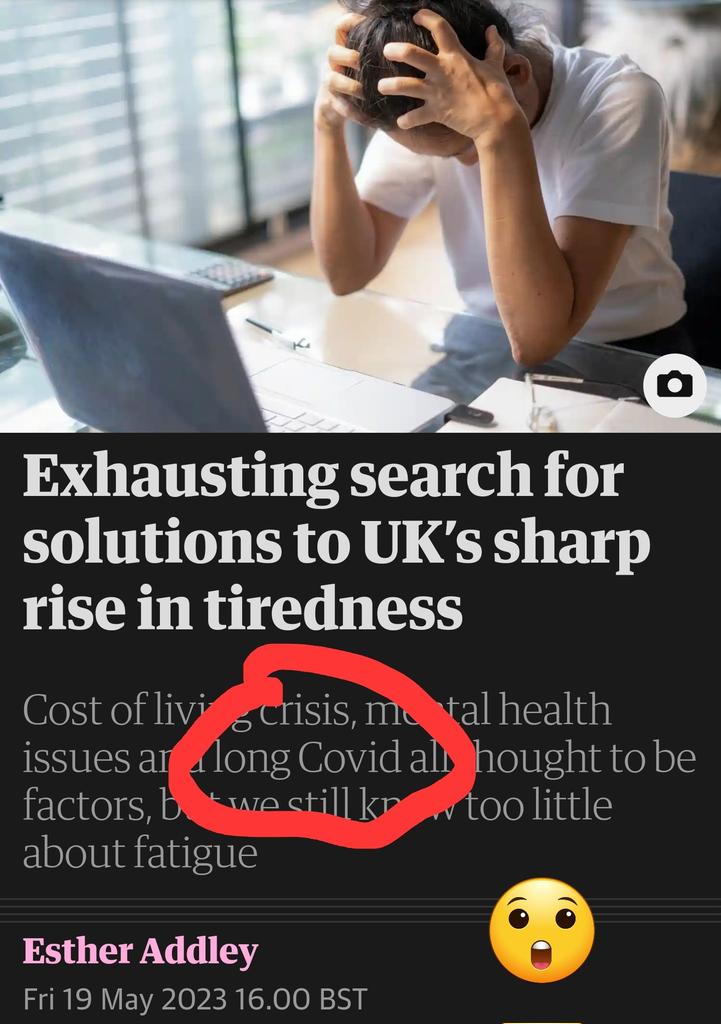rvallee
Senior Member (Voting Rights)
With the headline I expected the usual bad but this is a pretty good article from an MD with Long Covid.
Are We Ready for the Long COVID Long-Haul?
— The COVID public health emergency may be over, but this condition isn't going away
https://www.medpagetoday.com/opinion/second-opinions/104481
Are We Ready for the Long COVID Long-Haul?
— The COVID public health emergency may be over, but this condition isn't going away
https://www.medpagetoday.com/opinion/second-opinions/104481
Why are so many people failing to consider that their new forgetfulness, persistent cough, unexplained anxiety and depression, or their crushing fatigue after engaging in normal exercise might be related to their case of COVID-19? Why are people not taking the risk of long COVID seriously? And perhaps the most important question for us as medical professionals: Are we ready to care for millions suffering from long COVID for the long haul?
Early on in the pandemic, those of us who developed long COVID had no idea what was happening. We had luckily survived the initial viral infection, some mostly asymptomatic like myself and others recovered from mild to severe illness, but then we suddenly found ourselves struggling with various symptoms and unable to function normally. There was no formal diagnosis for the condition; in fact, the term "long COVID" was initially created by the people experiencing it, many of whom were feeling dismissed by the medical community and found each other online. We were called long haulers.
Over the next couple years, researchers and medical professionals also embraced the term, and it became clear that a particular set of symptoms of long COVID met criteria for myalgic encephalomyelitis/chronic fatigue syndrome (ME/CFS). Many with long COVID will recover, but some have had years of symptoms, some have become disabled from severe ME/CFS, and others have experienced other symptoms and conditions, such as postural orthostatic tachycardia syndrome and mast cell activation syndrome. Since mid-2020, there has been an estimated cumulative increase of 1.7 million Americans of working age who have reported a disability, and one study found that about 26% of those with long COVID, or about 4 million people, have altered their employment status or working hours.
Early on in the pandemic, those of us who developed long COVID had no idea what was happening. We had luckily survived the initial viral infection, some mostly asymptomatic like myself and others recovered from mild to severe illness, but then we suddenly found ourselves struggling with various symptoms and unable to function normally. There was no formal diagnosis for the condition; in fact, the term "long COVID" was initially created by the people experiencing it, many of whom were feeling dismissed by the medical community and found each other online. We were called long haulers.
Over the next couple years, researchers and medical professionals also embraced the term, and it became clear that a particular set of symptoms of long COVID met criteria for myalgic encephalomyelitis/chronic fatigue syndrome (ME/CFS). Many with long COVID will recover, but some have had years of symptoms, some have become disabled from severe ME/CFS, and others have experienced other symptoms and conditions, such as postural orthostatic tachycardia syndrome and mast cell activation syndrome. Since mid-2020, there has been an estimated cumulative increase of 1.7 million Americans of working age who have reported a disability, and one study found that about 26% of those with long COVID, or about 4 million people, have altered their employment status or working hours.
Last edited:


